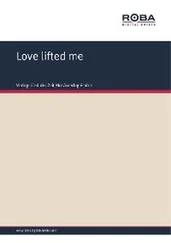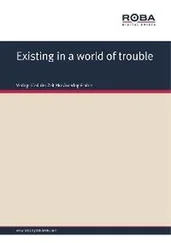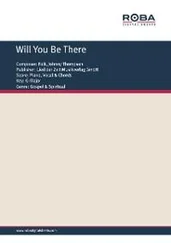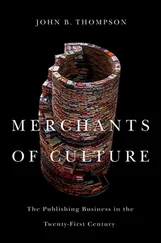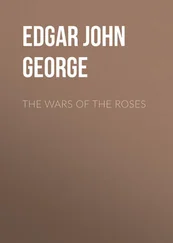1 ...8 9 10 12 13 14 ...34 Consumers who were still buying music were paying much less for it than they had paid in the late 1990s, when CDs were the overwhelmingly dominant format. In 1999, 938 million CD sales generated revenue of $12.8 billion, or $13.66 per CD; there were no download sales at that time. By 2009, CD sales had fallen to 296 million units; these were still generating revenue of $14.58 per CD but, because the units sold were less than a third of what they had been a decade earlier, the total revenue generated from CD sales had fallen to $4.3 billion. By contrast, music downloads had grown dramatically since 2004, and by 2009 there were 1,124 million single downloads and 74 million album downloads; taken together, however, these downloads generated only another $1.9 billion, and therefore came nowhere near to making up for the loss of $8.5 billion of revenue on CD sales. 7Moreover, while many people were paying for downloads through legitimate channels like iTunes, a very large but unknowable number of others were downloading music for free – according to one estimate by the online download tracker BigChampagne, the volume of unauthorized downloads still represented around 90 per cent of the music market in 2010. 8
There were many in the book publishing industry who were looking over their shoulders at the tumultuous developments in the music industry and wondering anxiously if music was the future of books foretold. What would the book publishing industry look like if piracy became rife and total book revenues were cut in half? What kind of revenue models would replace the tried-and-tested model on which the industry had been based for more than 500 years, and how robust would these new models be? How could the book industry protect itself from the rampant file sharing that had become commonplace in the world of music? What would happen to bookstores if more and more books were downloaded as files, or even ordered online rather than bought in bricks-and-mortar bookstores – how could physical bookstores survive? And if they disappeared, or even declined significantly, how would readers discover new books? It didn’t take too much imagination to see that the book publishing industry could be hit just as hard by the tsunami that swept through the music industry in the late 1990s and early 2000s. Senior managers looking out of the windows of their high-rise office blocks in Manhattan might well be wondering whether the days of their panoramic views were numbered.
And yet, during the first few years of the new millennium, the signs of what would actually happen in the book publishing industry were anything but clear. There was no shortage of speculation in the late 1990s and early 2000s about the impending ebook revolution – one much-cited report by PricewaterhouseCoopers in 2000 forecast an explosion of consumer spending on electronic books, estimating that by 2004 consumer spending on electronic books would reach $5.4 billion and would comprise 17 per cent of the market. Expectations were also raised by the startling success of one of Stephen King’s early experiments with digital publishing. In March 2000, he published his 66-page novella Riding the Bullet electronically, available only as a digital file that could be downloaded for $2.50; there was an overwhelming response, resulting in around 400,000 downloads in the first twenty-four hours, and 600,000 in the first two weeks. But, notwithstanding Stephen King’s good fortune, the predictions made by PricewaterhouseCoopers and others turned out to be wildly optimistic, at least in terms of the timescale. Those publishers who were actively experimenting with ebooks in the early 2000s invariably found that the levels of uptake were extremely low, indeed negligible: sales of individual ebooks numbered in the tens, in some cases, the hundreds, but were nowhere near the hundreds of thousands, let alone millions, of units that many had expected. Whatever was happening here, it didn’t seem to bear much resemblance to the sudden and dramatic transformation of the music industry – or at least not yet.
The story of the ebook’s rise turned out to be much more complicated than most commentators had thought, and as this story unfolded through the first decade of the twenty-first century and into the second, countless predictions, uttered a few years earlier with great conviction, turned out to be wide of the mark. Very few people accurately anticipated what actually happened, and, at every stage in this unfolding story, future developments were always unclear. The truth is that no one really knew what would happen, and for years everyone in the publishing industry was living in a state of deep uncertainty, as if they were moving towards a cliff but never knew whether they would ever reach the edge and what would happen if they did. For some within the publishing industry and many on the fringes of it, ebooks were a revolutionary new technology that would finally drag the publishing world, with its arcane practices and inefficient systems, into the twenty-first century. For others, they were the harbinger of doom, the death-knell of an industry that had flourished for half a millennium and contributed more to our culture than any other. In practice, they were neither, and champions and critics alike would be dumbfounded by the curious course of the ebook.
1 1 The rise of these three sets of players and their impact on the world of Anglo-American trade publishing are analysed in more detail in John B. Thompson, Merchants of Culture: The Publishing Business in the Twenty-First Century, Second Edition (Cambridge: Polity; New York: Penguin, 2012).
2 2 On the history of how, from the 1960s on, literary writers shifted increasingly to the use of word-processing technologies, see Matthew G. Kirschenbaum, Track Changes: A Literary History of Word Processing (Cambridge, Mass.: Harvard University Press, 2016).
3 3 See John B. Thompson, Books in the Digital Age: The Transformation of Academic and Higher Education Publishing in Britain and the United States (Cambridge: Polity, 2005), ch. 15.
4 4 See Chris Anderson, The Long Tail: Why the Future of Business is Selling Less of More (New York: Hyperion, 2006).
5 5 RIAA, US Sales Database, at www.riaa.com/u-s-sales-database.
6 6 Ibid.
7 7 RIAA. There were additional sources of revenue during this period, such as vinyl and music videos and, from 2005 on, ringtones and ringbacks, subscriptions, etc., but they don’t alter materially the overall pattern of revenue decline.
8 8 David Goldman, ‘Music’s lost decade: Sales cut in half’, CNN Money (3 February 2010), at http://money.cnn.com/2010/02/02/news/companies/napster_music_industry.
 Chapter 1
Chapter 1  THE FALTERING RISE OF THE EBOOK
THE FALTERING RISE OF THE EBOOK
Any attempt to recount the history of ebooks presupposes some understanding of what an ebook is. As noted earlier, our understanding of what constitutes a book has been shaped for centuries by the particular form that the book has assumed since Gutenberg – ink printed on sheets of paper that are bound together (glued, sometimes also sewn) along one edge, so that they can be read sequentially and turned over one page at a time, similar to the traditional codex but transformed by the use of paper, ink and the printing press. This form places certain limits on what can and cannot be treated as a book. It would be hard to treat a 20-word text as a book, for instance, as there simply wouldn’t be enough text to fill more than a page (unless this were a very unusual design with 1 or 2 words on a page). Similarly, the text cannot go on indefinitely, or even into millions of words, and still be produced as ‘a book’ in any straightforward sense (though it could be produced as a series of books). In other words, the welding together of content and form in the traditional print-on-paper book places certain contingent limits on what can and cannot be treated as a book. But separate the content from the form and suddenly it is no longer so clear what exactly a book is. Could a 20-word text be a book if there were no pages to turn and the text told a story from beginning to end with splendid conciseness? For the purposes of gathering statistics on book production by country, UNESCO famously defined a book as ‘a non-periodic publication of at least 49 pages exclusive of the cover pages, published in the country and made available to the public’. 1It is understandable that UNESCO wanted to come up with a clear criterion that would enable it to gather cross-national statistics on a comparable basis, but as a way of conceptualizing the book this is clearly an arbitrary number. Why 49 pages? Why not 48, or 45, or 35, or even 10 – why would a text of 45 pages not count as a book if a text of 49 pages would? On the other hand, could a text of several million words be a book if there were no need to print pages, and the form placed no limits on the extent? Once content and form are no longer tied together in the print-on-paper book, it becomes less clear what a book is, and hence what distinguishes, if anything does, a text from a book. Is an ebook simply an electronic text, or is an ebook a species of electronic text that has certain distinguishing properties – and, if so, what are those properties?
Читать дальше
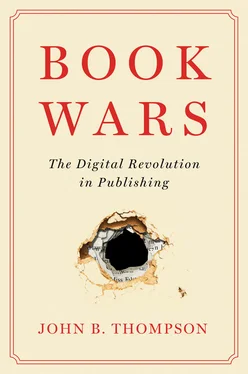
 Chapter 1
Chapter 1 


